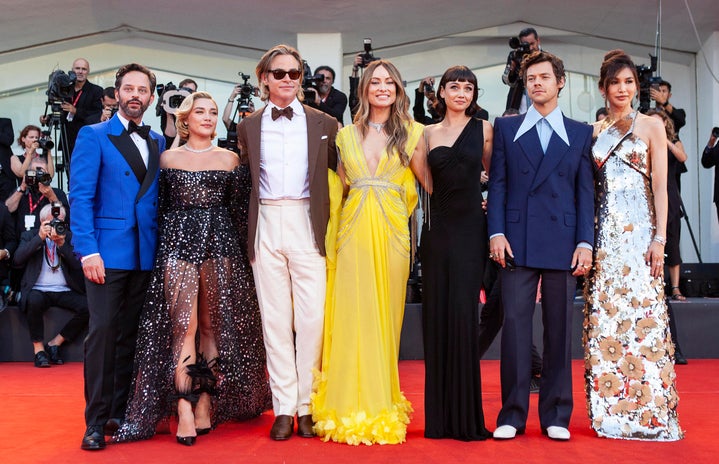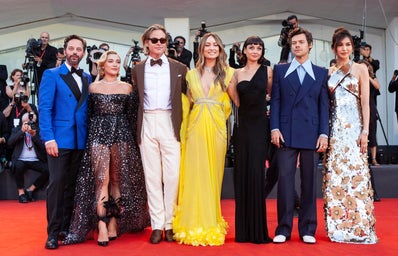Olivia Wilde’s sophomore film Don’t Worry Darling has been rife with speculation even before its worldwide release. The movie has truly served 2000s-esque pop culture drama at every turn, and while some of the drama has been straight-up bizarre (why would Harry Styles spit on Chris Pine!?), the misogynistic undertones of the behind-the-scenes controversies surrounding the film cannot be ignored. The drama surrounding the movie has, once again, shown how women directors are held to a different standard than their male counterparts.
First came The Wedding, where Styles and Wilde were pictured together holding hands in the middle of her very public breakup with her long-term partner, Jason Sudeikis. Fans and netizens alike took it upon themselves to dissect the intricacies of their relationship and everything from their age gap to Wilde’s hair, face and body were discussed on public platforms. Her professionalism and work ethic was questioned. But is it the first time a director has been involved with the star? Where was this venom when directors — like Cameron, Steven Spielberg and Stanley Kubrick — became romantically involved with their actors?
Then dropped the trailer, promising to be a psychological thriller with a feminist spin. The movie and the trailer focused on female pleasure and empowerment. But Olivia is a mother of two! Why is she talking about female pleasure so much? With Florence Pugh refusing to discuss that aspect of the trailer, people started questioning if the trailer is treading the line between women’s empowerment and a cash grab, a brand of you-go-girl boss millennial feminism that was (or should have been) retired the moment it was commercialized and capitalized.
However, the disagreement between Pugh and Wilde is being seen as a part of a wider anti-feminist agenda against female directors. Writer and former Empire editor Terri White wrote that “while not everything is gendered ” in this debacle, no one “would ask Christopher Nolan or Wes Anderson or Todd Phillips about on-set drama”. She is right; Wildes’s work is being taken as a joke and her character is being assassinated at every turn. Doing this to a male director seems unthinkable.
Finally came the 79th Venice International Film Festival and the Don’t Worry Darling drama was chaotic, magical and all anyone could talk about. From Wilde and Styles avoiding each other, Pugh avoiding Styles, and the entire cast avoiding their director, it really was a trainwreck through and through. Attention was, once again, taken away from the movie itself.
Is Olivia Wilde a helpless victim of the patriarchal mindset? I wouldn’t say so. After all, her calling Florence Pugh “Miss Flo” in a catty tone while asking Shia LaBeouf, who had recently been accused of physical and emotional abuse by singer FKA Twigs, to return (and even going as far as to say that this would give her a wakeup call to take the movie seriously) is at best, questionable. But the fact that her film and her film-making are held to a completely different standard from her male counterparts is glaringly obvious, and that should make us worry, darling.


